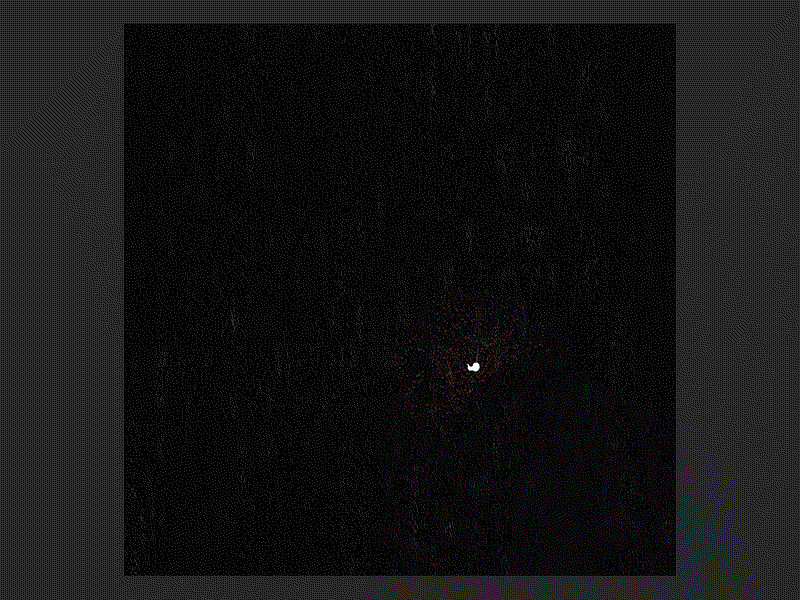Takeover Tuesday with Joey Judkins
Q&A with Joey Judkins: an animator and art director from Columbus, Ohio.
Q&A with Joey Judkins
Read time: 5min
Madison Caprara:
So, how did you get into your medium? Did it immediately click or take some exploration?
Joey Judkins:
It's hard to answer this only because it's hard to say what my "medium" is! I started drawing at a very early age, now I'm working in 2D and 3D on all kinds of projects. I'd say 3D definitely took some exploration and practice to learn, but after doing so much 2D character animation, I was happy to find that 3D character animation came relatively naturally to me once I knew the tools in C4D and Maya.
Madison Caprara:
Was there ever a point where you doubted your career path?
Joey Judkins:
All the time! When I was an illustration student in college, I wondered if it was a good idea to pursue illustration as a career. When I was a full-time caricature artist at a theme park, I wondered if it was a good idea to continue doing that, so I applied for a job as a video specialist which was a mix of motion design and videography at a church. After that, I doubted if being on a church staff forever was a good career move, so I took a staff job at a motion design studio.
I didn't really have a plan to leave any of those jobs until I had a healthy dose of doubt about them. Finally, after going freelance, I can say I've had less and less doubt about my career path. But the occasional fear that "this might not last forever" and "one day I won't have any work" still springs up. So I try to get through those fears by working on personal projects that excite me and challenge me creatively.
“the occasional fear that ‘this might not last forever’ and ‘one day I won't have any work’ still springs up. so I try to get through those fears by working on personal projects that excite me and challenge me creatively.”
Madison Caprara:
I see that you teach on the side, is that something you recommend doing for all creatives? What have been the most difficult and most rewarding aspects of teaching?
Joey Judkins:
I wouldn't necessarily recommend it for all creatives, I think there's something inside people who want to teach that compels them to do so. It's extremely rewarding when you know you've helped someone learn something, so that's the driving force behind wanting to teach. It's not a bad way to earn side income either, but it definitely takes a lot of work organizing your thoughts, feeling comfortable filming yourself and your process while, and then editing it down to something digestible for people to watch. Anyone who has tried to record themselves making tutorials understands that struggle.
Madison Caprara:
What have YOU learned about animation and what lessons have you incorporated into your work/life from teaching and working alongside your students?
Joey Judkins:
One thing I've learned from teaching is that everyone learns differently. Also, just because someone else may have a course similar to yours, that doesn't mean you shouldn't put your own voice out there and allow someone to learn from your unique style and approach. You always learn a little while you're teaching; it's almost like extra practice.
Madison Caprara:
Advice for those just beginning their journey: for or against the formal education route?
Joey Judkins:
This one is tough - I cannot say that someone wouldn’t benefit from a formal education in art or animation, because I'm speaking from the experience of someone who went to art school. I can say that in today's world, however, there are so many more avenues for learning online than there were when I went to school and that formal education has only gotten more and more expensive (but not necessarily better). Let's put it this way: If and when my daughter decides she wants to be an animator, I'm not going to let her go into massive debt to do it - I'll do my best to help her find an online solution. And when all is said and done, the best artists out there (whether self-taught, formally educated, or online) are going to succeed by putting in the work and being diligent.
Madison Caprara:
In the freelance game, there can be extended periods of downtime. What do you recommend doing to keep your skills sharp during these times?
Joey Judkins:
I always recommend having a running list of downtime projects; stuff you've wanted to learn, shots you want to work on to stretch your skills in one direction or another. One thing I'll say is that it's tempting to try to learn something based on fear (someone might not hire me if I don't learn X or Y), but I recommend learning something that aligns with your actual interests and what kind of work you want to do. Chase your desires, not your fears!
Madison Caprara:
What has been your favorite project, whether personal or paid? What about it really stuck with you?
Joey Judkins:
Another REALLY hard one! I'm going to say my Ultraboy animation (circa 2016) is one of my favorites because it represents so much about my artistic journey. When I first started, I knew no 3D whatsoever, but I had ideas for little stories and even video games. I came up with the character Ultraboy as a kind of homage to Megaman.
For a time, he existed only as a character design sketch in my sketchbook. I had ideas for ways he could use light and powers, and storyboards for fun little sequences to animate. The only problem is I had no idea how to actually do any of that. Over time, I learned 3D modeling, rigging, lighting, animation, and Octane rendering. The idea for Ultraboy came back to my mind, so I took a crack at it. Finally, what was in my head for so long was achievable thanks to new skills.
Madison Caprara:
Where do you go for inspiration?
Joey Judkins:
Honestly, I find a lot of inspiration on Pinterest, Behance, and (gasp) Dribbble! I remember people kind of flocking away from Dribbble a while ago, but it's still good for a quick idea or two.
“it's extremely rewarding when you know you've helped someone learn something, so that's the driving force behind wanting to teach.”
Madison Caprara:
How are you doing in this post-covid world? What are you doing now to achieve that necessary balance between work and sustainability in your life? How would you recommend fellow creatives go about prioritizing the work-life balance?
“the best artists out there…are going to succeed by putting in the work and being diligent.”
Joey Judkins:
I wouldn't necessarily call the world "post-Covid" yet, but I'm doing ok! I'm actually thankful I'm in a field where there is a large amount of flexibility on time and work situations. I can feel free to make my own schedule, pick up my kids from school, hang out at the house or at my own office when I need to. My wonderful wife does most of the work in order to allow me to have this kind of job though - she's a ninja without whom none of this would be possible.
If you're another creative and you are interested in having a family with kids, the biggest thing is figuring out a system and solid communication to divide and conquer work and life. If you don't have kids yet, you have the high ground in this industry, don't forget that. So it's up to you what you want to focus your life and attention on. It's hard to navigate how much "extra" time I should be putting into work - to learn, teach, make more money, whatever - while my children are here in my house, because eventually they will be grown, and I do not want to feel like I missed my chance to be a good dad to them.
Madison Caprara:
Do you have any closing advice, points, or statements you would like to share?
Joey Judkins:
If you're a freelancer, the best piece of advice I can give is to be a good communicator and always be reliable. Always do what you say you are going to do - it keeps your clients happy and keeps them coming back to you over and above your other skills.



